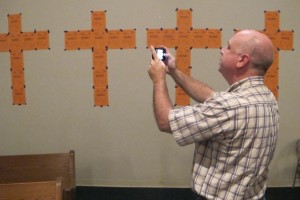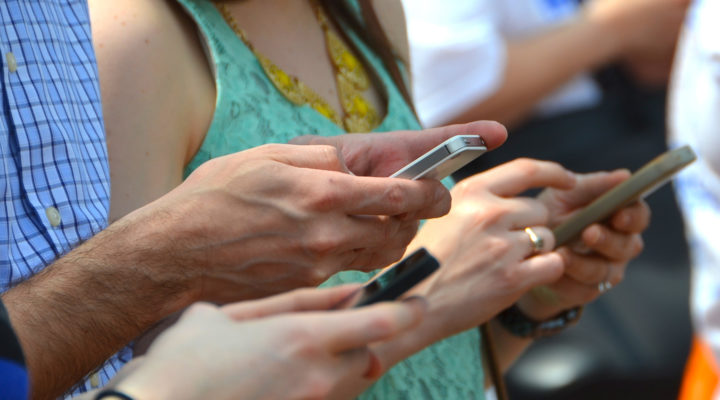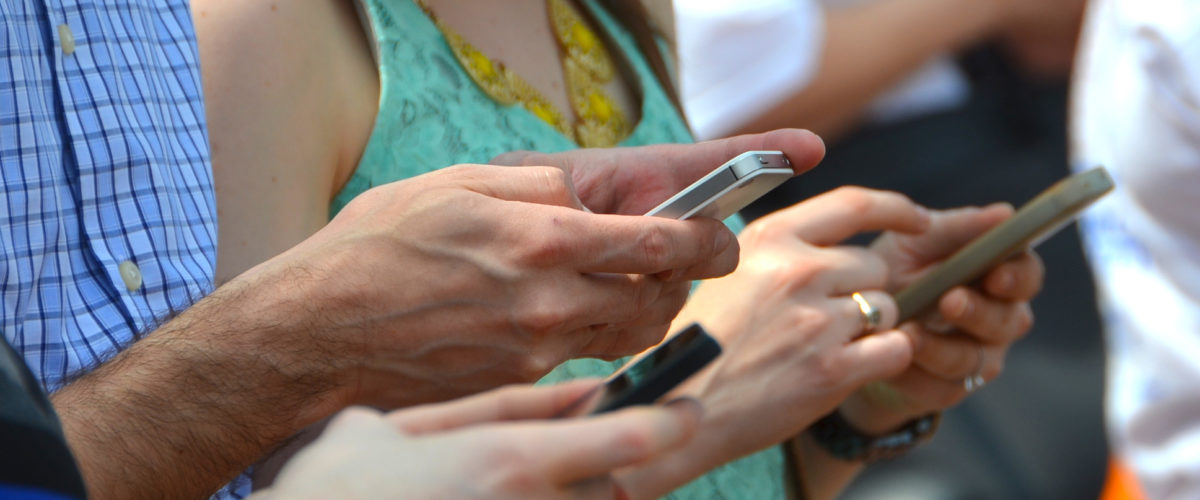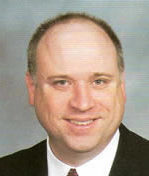Kevin Smith is a big believer is in using a Bible app, instead of a printed Bible, during Sunday morning worship. And he says it’s a good thing given the way his preacher preaches.
“Brother John likes to jump around a lot,” Smith said of Pastor John Crowder at First Baptist Church in West, Texas. “He’ll jump from the verse in the program, then say ‘let’s go to Jeremiah or to Job.’”
Instead of hurriedly flipping through pages one or 10 at a time to get there, his smartphone app provides a drop-down menu and scroll wheel that helps Smith keep up — no matter where Crowder’s bursts of scriptural inspiration take the congregation.
“It’s a lot easier to jump round on the app,” said Smith, a 33-year-old EMT.
Crowder agreed with Smith.
“That does describe me well,” he said with a laugh.
‘Driving’ people to church
But what it also describes well, Crowder said, is his enthusiastic embrace of the use of smartphones in virtually every aspect of Sunday worship.
And while his attitude may be viewed as something more common in big-city churches, Crowder said technology can transform congregations and their communities regardless of size.

Crowder said he’s always been a techie of sorts, but has more recently come not only to accept but to passionately promote the use of phones during worship. (Photo/Jeff Brumley/BNG)
Crowder said he’s always been a techie of sorts, but has more recently come not only to accept but to passionately promote the use of phones during worship.
Last week, he posted an 1,100-word blog — aimed mostly at his own congregation – offering “6 Great Ways to Use Your Cell Phone in Church.”
In it, Crowder urged worshipers to tag preachers and teachers when they say something inspirational. They should also use hashtags like #FBCWest to give exposure to the church.
“When something special is going on at your church, post or tweet about it and be sure to tag the church which will drive people to the church’s page or profile,” he wrote.
He also promoted the use of Bible apps due to their ease of use and carry. Then he provided a phone number church members could use to text their tithes.
It’s important to check in on Facebook, Twitter and Instagram when arriving at church to communicate with friends the value of attendance. Crowder told Baptist News Global that doing so is a far better method of outreach than sending postcards or visiting neighborhoods.
Getting looks
“I don’t think walking up and down the street knocking on doors and handing out tracts is going to reach people today with the same kind of impact as … personal contacts through social media,” he said. “I am convinced this is a much more effective means of outreach in today’s world.”
First Baptist in West has been experienced rapid growth recently, he said. “We are having a revival.”
Crowder couldn’t say how much of that is due to the church’s embrace of smartphone and social media technology. In fact, he said a lot of it is probably due to the congregation’s positive role in the aftermath of the deadly 2013 fertilizer plant explosion.
But he said he does know that visitors unfamiliar with the books of the Bible are much more comfortable following scripture readings on a phone than in a book.
A visitor may not know where Micah is, he said. An app helps them find it alphabetically and with just a couple clicks, they are there.
“It takes away some of the anxiety of the new folks,” Crowder said.
Crowder’s encouragement is also taking away the anxiety of those already sold on using smartphones in church.
“When we first started using our phones in church two years ago, we got looks,” Smith said of his family. “Now, half the church is using their phones.”
He knows some of those onlookers assumed he was merely texting friends or scrolling through his Facebook page. The truth is he is often sharing Bible verses with friends, many of them EMTs who do not attend church regularly or at all.
“Some of them have come to church after reading the verses I have shared,” Smith said.



